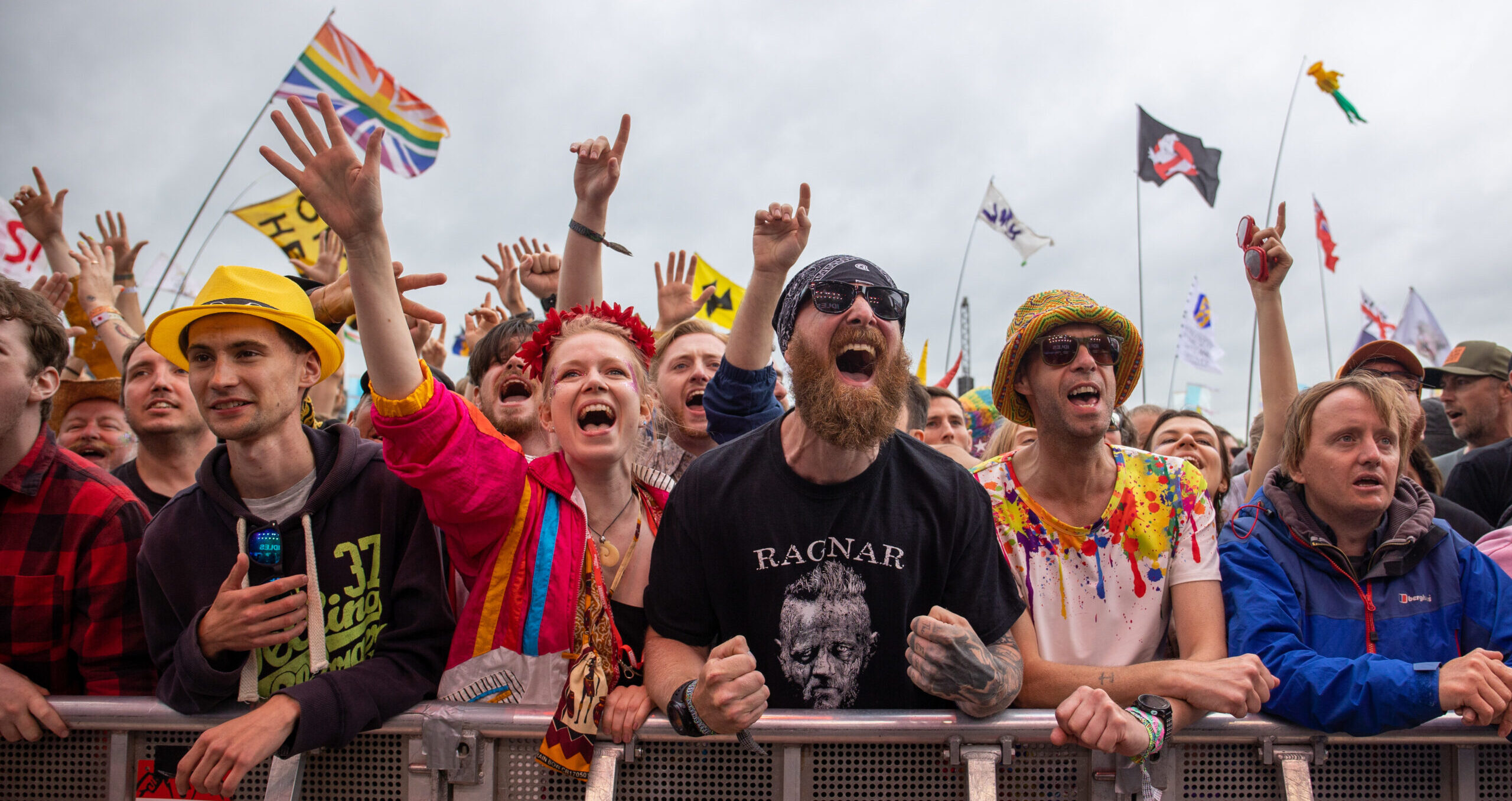Forty years ago, somewhere on the bill between UB40 and Alexei Sayle, the Marxist intellectual E.P. Thompson played Glastonbury Festival. Windswept, white-haired, prophetic, on the Pyramid Stage he delivered a speech ostensibly on behalf of the Campaign for Nuclear Disarmament (CND), but which really took the form of a populist sermon. “This has not only been a nation of moneymakers and imperialists,” he thundered, referring to the Thatcher government of the time. “It’s been a nation of inventors, of writers; a nation of theatres and musicians. An alternative nation — and it is this alternative nation which I can see in front of me now.”
It is difficult to know what Thompson would make of Glastonbury were he to turn up this weekend. When he was speaking, Glastonbury barely had fences; today the Festival is encircled by a Trumpian steel wall, even if it is draped with “No Borders” banners. Tickets have risen from £12 in 1983 to just under £350 today (going up by £100 in the last four years). And homogenisation has followed commercialisation, with the festival competing for the same international acts as every other. Instead of a muddy smudge of donkey jackets, Thompson would look out at the British branch of Coachella, a mass exercise in corporatised hippiedom.
There’s a fairground, vast broadcasting tents to translate the festival from “happening” into mass-media, and a crowd of management consultants on their biannual four-day bender. Imperialists they may not be, but most of them are certainly moneymakers. And something more than just music has been lost in this transition, the final fading of a dissident English community which Thompson spent his life chronicling and celebrating.
In his day, the Festival was marketed as the “Glastonbury CND Festival”. He was part of a very different crowd in 1983, one which was politicised and class-bound. It might only have been in his head (he was that very rare dialectical synthesis: a Marxist-Romantic) but he could nonetheless claim to be looking at the still-glowing embers of English folk-radicalism. In his eyes, these people could claim descendancy from the fallen of Peterloo. They sang like Percy Shelley, argued like Thomas Paine and thought like William Blake. Deeper still, the blood of the original dissident-Englishmen, the revolutionary groups from the Civil War like the Levellers and the Diggers, coursed in their veins.
Glastonbury itself can claim some of this history — whispers of Tors, Ley lines, Arthur and Arimathea have surrounded the place for centuries. And the Festival of the Eighties still proudly wore the remnants of these numinous influences, bringing together outsiders, rebels and misfits. The ascetic figure of Morrissey was a very modern incarnation of the protest-poet, shunning the trappings or rewards of the yuppie culture consuming the rest of the country. Punks and post-punks alike rejected material success as a form of “selling out”.
The death of that world has been told and retold. The nineties produced the first generation of alternative musicians who interpreted success primarily through their sales and reach. The Battle of Britpop reduced an indie “scene” into a popularity contest. When Noel Gallagher told a group of journalists after the 1996 Brit Awards that any gong voted for by the industry (“idiots, corporate pigs”) meant nothing to him, he was mouthing echoes, engaging in a kind of punk-pastiche. His subsequent lifestyle belied any real dedication to these principles, and no successful band since has truly yearned for “alternative” status. “Like it or not, we were Thatcher’s children,” designer Steve McQueen recently reflected of the Britpop scene.
In retrospect, alternative or indie music fell victim to the continuing expansion of capitalism across ever-increasing domains of cultural life. Glastonbury, by all accounts, still serves as something of an escape from the world of the city and the laptop, a hedonistic void at the heart of Somerset. And as Jeremy Corbyn, Stormzy and Greta Thunberg have all proved, it is still capable of playing host to each year’s favoured example of hyper-political symbolism. But it no longer holds any delusions of retaining the soul of an “alternative nation”. At best, it’s a weekend getaway from the Britain we all live in.










Join the discussion
Join like minded readers that support our journalism by becoming a paid subscriber
To join the discussion in the comments, become a paid subscriber.
Join like minded readers that support our journalism, read unlimited articles and enjoy other subscriber-only benefits.
Subscribe